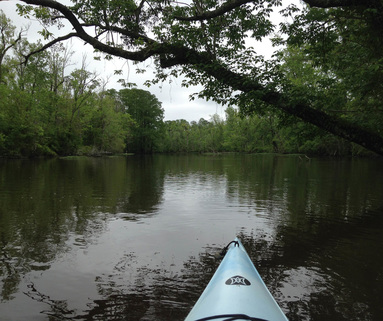|
Too often we work in self-segregated and uncoordinated isolation in efforts to conserve and protect natural lands and wildlife habitats, rivers and estuaries, public parks and reserved community green places. Failure to coordinate efforts through cooperative alliances diminishes our ability to be effective in aim to protect and conserve more land and water resources.
North Carolina’s environmental protection and land conservation organizations—motivated by the state’s 20-year-old grants program that provides funding for combined land and water conservation projects—have worked together more closely than in many other states, and may serve as an example of how to build partnerships across the South. Until recently,when the North Carolina state legislature and governor drastically reduced funding and combined several of the Clean Water and other environmental trust fund programs, state funding for environmental trust funds in some years exceeded the $100 million annual goal. With the added benefit of privately contributed funds, federal government matching grants, and landowners’ frequent willingness to sell land or easements for conservation at substantially less than appraised value, the leveraging effect of these public funds produced magnificent accomplishments. . . .
1 Comment
|
When we see land as a community to which we belong, we may begin to use it with love and respect.... Conservation, viewed in its entirety, is the slow and laborious unfolding of a new relationship between people and land." There is in fact no distinction between the fate of the land and the fate of the people. When one is abused, the other suffers. From the PresidentSCP President Chuck Roe looked at land conservation along the route of John Muir's "Southern Trek." About ViewpointThis blog offers views of our Board and partners. We invite your viewpoint on the following questions: Archives
April 2024
Categories
All
|


 RSS Feed
RSS Feed